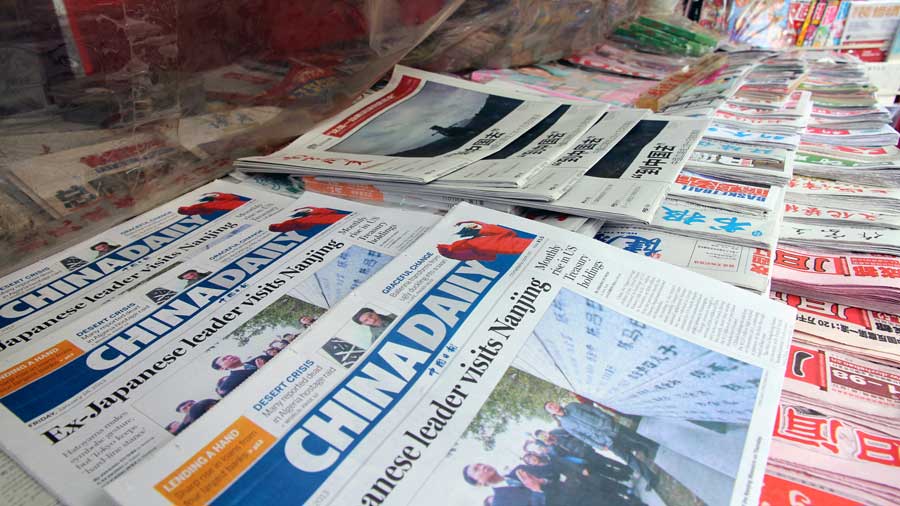The Belt and Road – Lacking a Brand and Corporate Identity

Op/Ed by Chris Devonshire-Ellis
Over the past 18 months that the Silk Road Briefing has been covering China’s Belt and Road development, one major point has become apparent – the amount of political and media push back there has been against the concept. I wrote about the phenomenon here in the article “The Belt & Road: China’s Most Internationally Divisive Campaign of the Past 25 Years”. Tellingly, much of the controversy has been generated by Western media, most of whose countries have not signed an MoU with China concerning the Belt and Road Initiative. Of that attention, most has been directed at criticism towards what is perceived as a type of Chinese financial colonialism or towards the initiative being a soft power ploy to later be exploited in military terms. The West’s view of “The Yellow Peril” – which has its roots in ancient biblical texts, has never really gone away.
However, Beijing has also been lax in giving the Belt and Road Initiative a more coherent identity. It has largely relied upon its diplomatic missions to spread the word, and underpinned this both with the creation of academic and other institutional support, coming mainly from financially oriented bodies such as the AIIB, various funds, and a handful of university think tanks. The public face of all this has been left to China’s global media reach, mainly Xinhua and newspapers such as the Global Times. Occasionally, more prosaic Chinese owned media such as the South China Morning Post and Caixin will run more independently oriented and thoughtful commentary, yet this is sporadic.
Beijing is missing a trick. Some of the Western media criticism has been leveled at the lack of coherent intelligence, and especially in terms of foreign business participation. Some trickles out via Xinhua, yet, by then, the projects being discussed are already a done deal. There is also no central point to concentrate Belt and Road discussions – China established a website, but even that has a non-catchy title, And that’s about it. The Belt and Road Initiative lacks a ministerial-level point of operations, a curious anomaly.
There are good reasons for this; and I am quite sure that no one quite knows where to place the Belt and Road Initiative – within the Ministry of Commerce or Ministry of Foreign Affairs? Co-ordination between the two, coupled with intense political rivalries, have long hindered seamless cooperation. However, the Belt and Road suffers as a result – with no central focus point to gather data, provide intelligence, and promote a more coherent overall picture as to how Beijing intends to develop this most massive of projects.
Branding is also an issue: there is no official Belt and Road logo. While this may appear superfluous or even whimsical to some, it is also a key point – the concept lacks an identity. Again, until someone can deal with this, the Belt and Road Initiative will remain an almost unidentfiable concept. Creating a marketing entity for the BRI will allow interested parties to better identify with it. The branding goes hand in hand with the need for a governmental structure to go with that.
Unless Beijing is able to solve these issues, Western media criticism will continue. Today’s attention spans in a digital age are smaller than before, arguably less intellectual as a result, and often purely concentrated on generating readership views as a marketing sop rather than pushing legitimate content. To muscle into that competitive space, China needs to up its game as concerns the Belt and Road. The danger for China is that unless it does, the media will continue its policy of misunderstanding Chinese intentions, partially as a result of no clear focal point from Beijing, and continue its negative approach. That in turn fuels fears, misconceptions, and prejudices towards the nation as a whole. A re-think by Beijing on providing the Belt and Road with a better organized global public media and communications platform for what is an international development concept would be a wise move.
About Us
Silk Road Briefing is produced by Dezan Shira & Associates. Chris Devonshire-Ellis is the practice Chairman. The firm has 26 years of China operations with offices throughout China, Asia and Europe. Please refer to our Belt & Road desk or visit our website at www.dezshira.com for further information.
 Related Reading:
Related Reading:
![]() It’s Corrupt Democracies that are the Source of Belt and Road Debt Problems, Not China per se
It’s Corrupt Democracies that are the Source of Belt and Road Debt Problems, Not China per se
![]() China’s Belt and Road Initiative is Being Blamed for Sri Lanka’s Hambantota Port Problems. But the Real Story is Rather Different.
China’s Belt and Road Initiative is Being Blamed for Sri Lanka’s Hambantota Port Problems. But the Real Story is Rather Different.
Silk Road and OBOR Business Intelligence
Dezan Shira & Associates´ Silk Road and OBOR investment brochure offers an introduction to the region and an overview of the services provided by the firm. It is Dezan Shira´s mission to guide investors through the Silk Road´s complex regulatory environment and assist with all aspects of establishing, maintaining and growing business operations in the region.






